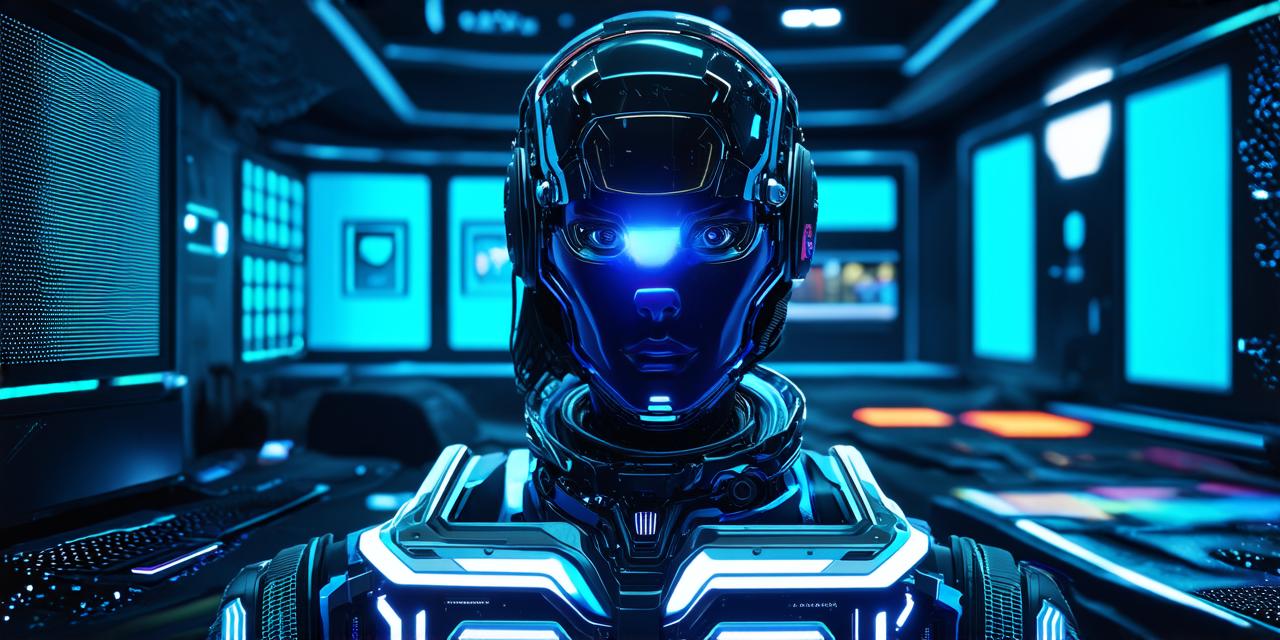The Role of AI in Game Development
AI is already being used in many aspects of game development, from creating more realistic and dynamic NPCs to generating procedural content. One of the key advantages of using AI in game development is its ability to create content on the fly. With procedural generation, game developers can create entire worlds or levels without having to manually code them.
This allows for greater creativity and flexibility, as well as the ability to create content that is specifically tailored to individual players.
Another area where AI is being used in game development is in creating more realistic NPCs. By using machine learning algorithms, developers can create NPCs that are capable of adapting their behavior based on player actions and decisions.
This can lead to more engaging and immersive interactions between the player and the NPCs, as they become more responsive and dynamic.
AI is also being used to improve game performance and reduce load times. By using machine learning algorithms, developers can optimize game code and assets in real-time, leading to faster load times and smoother gameplay.
This can be particularly important for online games, where lag and stuttering can cause frustration for players.
The Impact of AI on Gameplay
One of the most significant impacts of AI on game development is its ability to create more dynamic and responsive gameplay. By using machine learning algorithms, developers can create NPCs that are capable of adapting their behavior based on player actions and decisions.
Another area where AI is having a significant impact on gameplay is in procedural generation. By using algorithms to generate content on the fly, developers can create entire worlds or levels that are specifically tailored to individual players.
This allows for greater creativity and flexibility, as well as the ability to create content that is dynamically generated based on player choices.
AI is also being used to improve game performance and reduce load times. By using machine learning algorithms, developers can optimize game code and assets in real-time, leading to faster load times and smoother gameplay.
Case Studies: Real-Life Examples of AI in Game Development
One of the most exciting examples of AI in game development is NVIDIA’s Deep Learning Super Sampling (DLSS) technology. DLSS uses machine learning algorithms to optimize game code and assets in real-time, leading to faster load times and smoother gameplay. By using DLSS, game developers can create games that are more visually stunning and immersive without sacrificing performance.
Another example of AI in game development is the use of machine learning algorithms to generate procedural content. One company, No Man’s Sky, has used this technology to create a vast and dynamic universe filled with unique planets and creatures. By using procedural generation, No Man’s Sky has been able to create a universe that is infinitely expandable and filled with endless possibilities.
AI in Game Development: The Future of the Industry
The impact of AI on game development is only just beginning. As technology continues to advance, we can expect to see even more exciting applications of AI in game development. This could include everything from creating more dynamic and responsive NPCs to generating entire worlds or levels on the fly.
One area where AI is likely to have a significant impact is in the creation of virtual reality (VR) games. By using machine learning algorithms, developers can create VR experiences that are more immersive and interactive, allowing players to feel truly present in the game world. This could lead to a new generation of VR games that are even more engaging and immersive than what we’ve seen so far.
Another area where AI is likely to have a significant impact is in the creation of mobile games.
